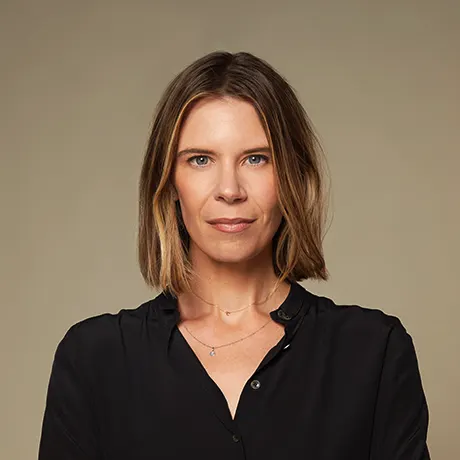What ADHD feels like and sounds like (Yinan’s story)
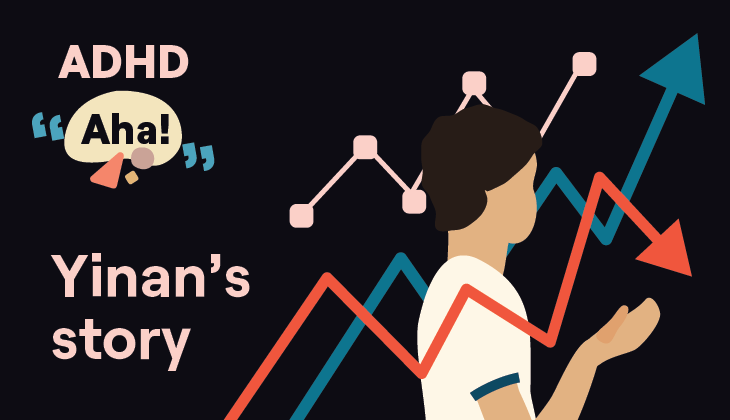
Stay in the know
All our latest podcasts delivered right to your inbox.
What does ADHD sound like? What does hyperactivity feel like? Yinan Shentu, a voice actor, theme park performer, and world-class collector of hobbies, hits the nail on the head with his impressions and descriptions.
Yinan was diagnosed with ADHD last year after starting yet another new hobby: stock trading. When reading about trading, he realized he was re-reading the same sentence seven times and still couldn’t remember what it was about. One online ADHD test later, and he felt certain he had ADHD.
A lot of his childhood made more sense after his diagnosis. He would act out all the time to keep from being bored — even a clown talked to him about his behavior! Now, Yinan’s ever-changing job performing as different characters fits right into his fast-paced brain.
Join this conversation between host Laura Key and Yinan. They also talk about fidgeting, and how starting a task is the hardest part.
Related resources
Episode transcript
Yinan: I remember reading this same sentence seven times in a row and still not understanding what the heck that I just read. Just one sentence. I don't even remember if it was a short sentence or long sentence. I remember reading it, getting to the end going, "Wait, what did I just read?" Reading it again. Nope. Didn't get that. And then finally thinking, "I don't think this was normal."
Laura: From the Understood Podcast Network, this is "ADHD Aha!," a podcast where people share the moment when it finally clicked that they or someone they know has ADHD. My name is Laura Key. I'm the editorial director here at Understood. And as someone who's had my own ADHD "aha" moment, I'll be your host.
I'm here today with Yinan Shentu. Yinan is an actor and theme park performer who lives in the Orlando area. Welcome, Yinan.
Yinan: Thank you for having me.
Laura: OK. I want to get started with you explaining to our audience, our listeners, what it is that your job is, because it's just so interesting. I think you should describe it as opposed to me.
Yinan: It's always funny trying to describe it, because part of it is we're kind of limited by what we do in the realm of talking about what exactly it is that we do. So I'll start by saying regularly I am a performer in the theme park world in central Florida. So I perform for the Walt Disney World Resort, and I perform for Universal Orlando Resort. And I've been a character performer, actor, since about 2013 or so. And I bring to life some of the magical Disney friends that you see in the park, as well as some at Universal as well. I do several actor roles at Universal and just many, many different things over the years.
Been a stilt walker. I learned to still walk at Disney and then I was a stilt walker in their shows. I was a puppeteer then a puppeteer at Disney, and then was out in L.A. studying with some really, really cool people out there as well. So I've done some puppet stuff out in L.A., which is really, really cool. One of the most challenging things I've ever done, honestly. Let's see, what else? I mean....
Laura: I mean, do we need more? I mean, that's amazing. Stilt walking, puppetry, theme parks. And I'm sure our listeners have already noticed how amazing your voice is. And I know that you can't give specifics about what voiceover work you may or may not have done, but....
Yinan: Well, I — something that I just did recently came out. I was in an animated, my first ever animated debut, which is — I'm still processing it. Amazing to be able to say, "Oh yeah, I'm in an anime on a streaming service that's THE streaming service for anime." So that's pretty mind-blowing and I haven't exactly processed it yet, I don't think.
Laura: Seems like a fun job. I'm sure that it's also very challenging in lots of ways. But I want to use this as an opportunity to say your "aha" moment that led to your diagnosis last year in 2021 was something job-like that you were doing on the side. It was really just something that was not your full-time job. Can you tell me about that?
Yinan: I guess it was kind of a hobby. I was looking into the stock market and trading and investing — and more specifically, swing trading and day trading, because I was really interested in the statistical side of that. And also for me it was — this is the shortest path between executing a decision and making money, and I'm very practical in that sense. So it was like, OK, well this is definitely not the easiest, but the quickest way. That immediate reward payoff was really, really cool.
So I delved into the subject. I was listening to podcasts, I was reading books, I was watching YouTube video, I was joining a Discord community, taking in everything I possibly could. And I remember reading a couple of e-books. I finished one or two, and then the next one that I was reading — there was a bit more dry material in there. I mean, imagine that: stock trading, dry material. But for me, this was something I was still very interested in. Except I was having these moments where — and you know, with the diagnosis later I realized that I was having these moments all throughout childhood — but I would be reading the same thing multiple times. Or I'd be reading a section of a book and realizing that I have no idea what I just read. So I'll go back and I'll read it again.
Or what would happen more often in childhood was, "Oh, I'm such a fast reader!" But I'm really not. My brain is just skipping parts of the text that it doesn't find interesting almost automatically. And then picking up to the next paragraph or whatever that catches my attention. And then I'll reread the Harry Potter books back when I was a kid. I would reread them all the time because like, "I don't remember this part. Oh, I don't remember this part. I don't remember this part." And then, you know, several decades later, finally being like, "Oh, ADHD, that's why."
Laura: We need to unpack that a little bit. That was — I mean, because stock trading. Not at all like your full-time job, first of all. Very different world. You got interested in it. There are so many ADHD-related threads there, right? So you got into stock trading — probably, like the intensity of it, the quick payoff of it.
Yinan: Well, it was during quarantine, working in a theme park. They were very, very slow to reopen. So I love being creative, and I love putting creativity into things. But then having grown up in a very traditional Chinese upbringing, I'm also pretty good with numbers and analysis. One of my good friends once referred to me as "a computer with a sense of humor," and I thought that was so accurate that I put it up on my social media, like the little description section underneath your profile picture.
Laura: I love it. It's your call sign: computer with a sense of humor.
Yinan: It really is. It really is. I'll wear that, I'll wear that medal proudly.
Laura: OK, so you latch on to this hobby, interest, etc., but it sounds like it was actually the reading about it that started to tip you off and leads you towards getting evaluated for ADHD — the reading, and the getting distracted while reading. Is that accurate?
Yinan: Yes. And getting distracted while talking, apparently, because obviously I ramble.
Laura: It's all part of the show, you know, it's all good.
Yinan: I explicitly remember: I read the same sentence of this book seven times in a row. And every time I would get to the end, and I would go, "Nope, not a clue what I just read." Go back to the beginning. Read it again. Nope. Not a just clue — seven times I counted. And that's the point where I was kind of like, I never really thought that I had ADHD. Growing up in the '90s, being able to catch that sort of thing was not necessarily as advanced as it is now, so.... I didn't do that poorly — just don't ask my parents — in school.
So there was no indication of, oh, this kid might have ADHD. Except for like some bad behavior problems which I never really understood, but now I totally do.
Laura: What led from that reading the same thing over and over again to getting evaluated for ADHD?
Yinan: So it was at that moment where — and my partner and I had always kind of talked, not seriously, about, you know, you might have ADHD, you might, you know, we're both a little neurodivergent. But ADHD was never one of those things that I really I even pictured. And so a couple of days later she said why don't you take this online ADHD test that was made by somebody that, you know, wasn't somebody trying to sell something. It was just a — like a medical-adjacent sort of website or whatever.
And she's asking the questions. And I'm listening to her ask them like, "Yeah. Doesn't everybody do that? Yeah. Doesn't everybody do that? Yes." And it wasn't even like — I don't like to speak in absolutes. Sometimes when, you know, those like strongly agree, kind of agree. I never really like to hit strongly agree unless I'm like 110% believing in what that is. So I never like to go to extremes. But hearing those questions was like, yes, definitely, yes, definitely, strongly agree, strongly agree all the way down.
And then it was like, "Huh. I've had ADHD." And the more I thought about it in the days, weeks, months, years to come, the more I was like, oh my God, this makes so much sense. This is why reading tends to get a little difficult for me, because if I have to — especially like academic reading? Having to force myself to slow down and read for understanding and mentally not being able to. That explained a lot about being in school, being — like for example, senior year of high school. I was in all AP classes except for English. I was in ones-level English. Not even honors. Ones-level English. And I was like, I don't understand. This is very funny. Because like on the SAT, critical reading was my worst subject. And yet I want to be an actor. I really, really wanted to be an actor.
Laura: You know, you don't even know. I went to journalism school. I got my master's in literature, and yet I struggle with that exact same — I don't know why. I'm such a masochist. But I totally get it. It's like I'm re-reading, I'm re-reading, I'm re-reading. OK, so you go through this online questionnaire and then you you reach out to your doctor, you get diagnosed, etc.?
Yinan: Right after that, I set up an appointment with a psychiatrist. He started me on some medications that were — one was, I think, going to last for like maybe three or four hours. It wasn't a stimulant. I don't remember what it was called at this point. But I did remember feeling it working, because the first night I took it and then I went to go read again, and then I went out to the living room and I told my girlfriend I was like, "I feel slower."
And it was a good thing, you know, because it was like I had been running. And someone looked at me and went "Hey, you don't have to run. You can walk." And that's what my whole body and mind felt like. And it was so. It was so strange. I'd never felt that before. I always thought what I felt was normal. We always think that our normal is normal.
And then it clicked in my head: I probably need to be on stimulant medication. So I took that and it was like television static that's constantly in your brain. It's like a TV that is constantly stuck on that channel playing — I don't know if television static still a thing nowadays, but....
Laura: I'm sure you can find it on YouTube, Yinan.
Yinan: Yeah, exactly. If you don't know what it is, YouTube it. It's like the volume just slowly gets turned down as medication is activated. And then it's like there's no sense of I am constantly bored. I constantly need stimulation. And it was like night and day. It was so different and it made it so that I could actually focus on things that I wanted to focus on. And I hadn't felt that way since ever, I guess.
Laura: Overall, I mean, I think the most important thing is that you realized that you needed support, right? And for — in your case, medication being that support. And you, like many people, went through this kind of journey with different types of medication, and I've been there myself. Someone asked me recently, what does ADHD medication feel like? And I said, "It feels like nothing. I feel — I only feel it when I stop taking it."
Yinan: Exactly. I don't feel stimulated. I feel like there is a burning hole in my brain that it's always like, stimulate me, stimulate me, stimulate me. And I'm just shutting it up.
Laura: How else did getting diagnosed with ADHD help you, if at all?
Yinan: I said to myself — a lot — "I'm lazy, I'll never do that." Which at the time I thought, this is me being realistic. I'm just fully submitting to the fact that I am a lazy person. That is part of who I am. And maybe one day that will change.
But now I realize it's not that I'm lazy, it's that I have a combination of neurodivergent traits that make executive function very difficult to recover. I think I don't have any of this energy to go do — I mean, there have been times where I just didn't feel like getting out of bed all day. Even though it was as easy as — like I would get up and eat or whatever, and then it come back and just lay down because that gave me dopamine.
Laura: That in and of itself is huge. You know, it doesn't mean you're going to automatically be able to do all the things that you want to do. But just, it's a little bit of self-kindness and a little bit of self-awareness. Yeah.
Yinan: Yeah. And sometimes I still can't. But it's also the fact that I've — I know that I can because it's not doing the thing. It's starting the thing. Because — I would give this advice to my partner and she would be like, "I know that a shower makes me feel better, but sometimes I just can't get myself to do it." And I'm like, "OK, go stand underneath the water and just stand there. And if you feel like turning it on, turn on the water. And if you don't, then get out of the shower." And 99 times out of 100, even when you think about it, you're like, I will, I would probably turn on the water in that case.
If the idea of doing a whole task — it doesn't even have to be a big task. It could be a task that takes five minutes. And you procrastinated for two months because you think it's going to be so much worse than it actually is, which it usually, always is.
Laura: Oh, totally. My husband will be like, "Why are you so stressed out?" I'm like, "Because I have to do X." He's like "X take like 5 minutes." I'm like, "Yeah, but I have to actually start it."
Yinan: Getting started is really the enemy of — I know, personally me with ADHD, and I know that if something that even I enjoy feels like it's going to be a chore, it feels like it's work. Because I've stopped a lot of projects before. I used to be a YouTuber. So there's another hobby, a YouTuber for about a year. And people really like my content, and then I got burnt out on it.
Laura: What other kinds of hobbies did you get into, or have you like started and stopped quickly? So we've got this — we know the stock trading. And your job in and of itself kind of allows for a lot of hobbies, but they're not hobbies because you're getting paid for them and you do them consistently.
Yinan: Professional hobbies.
Laura: Professional hobbies. The best kind of hobbies, the ones you get paid for.
Yinan: The job really does help, because I think that when I first started entertainment with Disney in 2013, I said, I'm just going to do this for a couple of years, you know, get it out of my system and then go and get a big boy job. And every year I just kept getting something different. And there's something new, and learning a new skill, and then being asked to use that skill in a show.
And then I eventually ended up leaving Disney for the first time and then going Universal and learning different stuff there as well, and realizing how much of a world was outside and then discovering voice acting. Because when I was younger I wanted to be an actor. But because I am of Chinese heritage, when I was growing up, all the actors did not look like me unless it was a very specialized role. I'm getting off topic again.
Laura: But wait, I have to ask you a question. There's a reason I was smiling. I heard a clicking. Were you fidgeting?
Yinan: No.
Laura: Were you playing with something?
Yinan: Yes. Yes, I was.
Laura: No, I love it. I get it.
Yinan: I was, well, I ripped apart this paper clip and I was like, well, that's useless now.
Laura: I'm going to give you a glimpse into my mind as the interviewer here. I was going to talk about your hobbies and the things that you've tried. And then I was going to slowly transitioning on into hyperactivity and fidgeting. And you did that for me, so I appreciate that.
Yinan: Well, I want to answer your questions, because I feel like I haven't been doing very much of that.
Laura: You're doing amazingly. You're doing great.
Yinan: A lot of the things that I learned were performance based because not only were they interesting to me to do, but also to — it helped with my job. I mean, I can't count how many years I've just been speaking in random accent just because they're fun. And now I get paid to do a British accent now. So that's the wildest thing that's ever happened to me.
Laura: Do it!
Yinan: Oh, now I'm nervous. I can't do it now — click back and go, "Oh no."
Laura: I'm sorry. I actually have another question where I'm going to ask you to do a voice not from a character, but in a different kind of way.
Yinan: Sure, sure. I'm less sensitive about that. Oddly.
Laura: If ADHD were a voice, what would it sound like?
Yinan: Oh gosh.
Laura: You can marinate on that.
Yinan: That's a really good question. For me, it would just be — so if you picture the static. Everything. That's kind of how I describe ADHD is just television static, but it's just that and then a little voice in your head noticing every tiny little thing that happened around you. And there's a pencil over here and there's the paper clip over there. Oh, don't forget, you didn't do the dishes. And when you get back, you need to make sure that you, uh, you make sure you sweep the ground. And that one — remember that one little spot in the, uh, in the kitchen that, well, the kitchen. The guest room — the guest room also needs some cleaning up, too. And remember, you left that thing over there when you were eating. You should really stop eating in your recording session. You're not supposed do that. Not supposed to, you're not supposed to do a lot of things in your life like, oh, I don't know, be late for work, but you're always late for work. You get the point.
Laura: Bravo. That was very, very good. And sounds like me this morning.
Talk to me about hyperactivity. What does hyperactivity feel like in your body? Especially as an adult. I'm going to ask you about when you were a kid, if you can remember that. But first. Because hyperactivity kind of shows up differently in teens and adults than it does in kids.
Yinan: Hyperactivity. Having it as a regular thing feels like when you — maybe you've had this experience or your viewers have had this experience. Feels like when you're out with friend or whomever. And one of them just all of a sudden reaches over and forcefully grabs your leg. To stop it shaking. And you didn't realize it was shaking in the first place. And you're like, "Oh, sorry." Because you're making just a little like noise every time or whatever. That's kind of the best way that I would describe that.
Laura: I had never thought about it that way. That feels like someone stopping you because you can't stop yourself anyway.
Yinan: You don't even realize that you're doing it.
Laura: Or you don't even realize that you're doing it. Exactly.
Yinan: Like it's like a comfort thing. Like a lot of times when I've been through some rehearsals recently and they've said, when you get out there, just park and bark. They call it a park and bark because I would get out there and I would start talking and I would stroll from one side of the stage to the other side of the stage and then back to the middle of the stage. And it's like, no, just stay still, because people are getting seasick looking at you.
Laura: Do you remember, were you hyperactive as a kid?
Yinan: I think so, yeah. I think all the bad behavior problems — because I wasn't trying to act out, and I never really understood what people meant. And I was relatively young. I don't remember exactly how young. I remember being told by multiple people that I had behavior issues. I was told by a clown at a birthday party. For some reason, I distinctly remember that. The clown going "We need to talk about your behavior today."
Laura: I'm dying. Oh my God.
Yinan: And I just remember thinking, "I don't know what that means, but OK."
Laura: Did you — OK. Composing myself. Did you grow up in Orlando?
Yinan: No, no, no, no, no. I grew up kind of all over. I was born in Beijing, and I went to the States when I was maybe 3 and change. So I spent most of — the large majority of my life in the United States. I've lived in Long Island. I've lived in, let's see, New York, Indiana, Massachusetts, Pennsylvania. And then now I live down in Florida because I did the Disney College program and never left.
Laura: And how did your your parents perceive your, quote unquote, behavior issues?
Yinan: That's a good question. I don't remember. I don't actually remember, because I don't remember if it was anything more than just a oh, you need to be better behaved. But what does that mean to a kid? You don't know. I'm guessing — I don't remember any specific instances of behaving badly, but I'm guessing it was because I was always bored. And so I needed to do something to entertain myself. And when you're a kid, the line between things you should do and things you shouldn't do are kind of not really there yet. So I did a lot of things. It was like, no, don't do that, stop it. You're annoying. Stop.
Laura: Did you ever get in trouble at school? I know that you have a history of getting in trouble with clowns. But did you ever get in trouble at a school event or in class?
Yinan: Probably. I remember one instance where we — I was in grade school at the time. And I remember just chucking — it was like the mulch chips. We were sitting outside and I threw some mulch chips at someone. I didn't pick up a fistful and like just, you know, pitch it in their face. It was like I tossed it over at them at their leg, and they didn't like that, rightfully so. And then they told on me and I got a talking-to and I just remember — I don't know why I did it.
Laura: Yeah. You were impulsive.
Yinan: Which was kind of the running theme with all of the bad behavior instances. And now, years and years and years later, I'm like, oh, OK.
Laura: Did you ever feel like kids treated you differently?
Yinan: So in high school, I had friends that I think were friends with me because yes, they did like me, but also I was part of a speech and debate team in high school, and the speech team hung out with each other a lot. I think I said and did things quite a lot that were very cringey, were very like, how do you not know that you shouldn't say this or do this or act like that? Not very socially aware of a lot of things. But I think part of that was growing up in the very traditional Chinese parenting environment, especially with my mother, maybe in combination with the ADHD, I don't know.
But when I was around people, I really, really, really wanted to impress them and have them think that I was so cool and the best and all of this. And I tried way too hard and I wasn't really socialized very well. So the things that I would think to say, I would say them and they'd be like, that didn't come out the way that — that sounds really stupid now. And I think it drove people away from like necessarily wanting to be friends with me, rightfully so. Because it was like when you say weird thing consistently, not a lot of people necessarily want that in their life, you know, especially in high school.
Laura: I wonder if some people liked hanging around you for that reason too, though. I mean, just sitting here talking to you, you're so funny. The things you say are unexpected, which I love.
Yinan: Yeah, that's from years and years of socialization and years of improv classes and years of working on my self-esteem. So I always said that from high school to college, I changed almost overnight. Because I got to college for the first day of music camp, which is about a week or so before orientation started. So we were there before all the other kids were, and we got to do all, you know, musical theater stuff. And it was awesome. I had none of the issues that I was just speaking about — needing people to like me so desperately that I unconsciously try to be funny, try to be cool, try to be these things. And failed miserably. And I didn't have really any of that.
Just right off the bat, I was friendly with people. I met new people. Having a blank slate also worked really well. I met so many new people and made friends with almost everybody to the point where when orientation started, I was — I felt like one of the cool kids. Like I already knew everybody and I didn't feel socially anxious at all. So it was probably the upbringing and being far away from a very traditional Chinese mother was an awakening. And also not having that sort of stress really, I don't know, allowed me to blossom, if you will.
Laura: I don't really know how to end this interview. I just know that I've enjoyed this interview. It feels like a moment in ADHD time of bouncing from really interesting topic to really interesting topic and having a really good time. So I guess I just want to say thank you. Thank you for coming on and sharing your story with me.
Yinan: Yeah, thank you for having me. This is, I mean, I agree. This was very, very fun, if not a little scatterbrained like everything else in my life.
Laura: I mean, same here, Yinan.
You've been listening to "ADHD Aha!" from the Understood Podcast Network. If you want to share your own "aha" moment, email us at ADHDaha@understood.org. I'd love to hear from you.
If you want to learn more about the topics we covered today, check out the show notes for this episode. We include more resources as well as links to anything we mentioned in the episode.
Understood is a nonprofit organization dedicated to helping people who learn and think differently discover their potential and thrive. We have no affiliation with pharmaceutical companies. Learn more at Understood.org/mission.
"ADHD Aha!" is produced by Jessamine Molli. Say hi, Jessamine.
Jessamine: Hi, everyone.
Briana Berry is our production director. Our theme music was written by Justin D. Wright, who also mixes the show. For the Understood Podcast Network, Scott Cocchiere is our creative director, Seth Melnick is our executive producer, and I'm your host, Laura Key. Thanks so much for listening.
Host
Latest episodes
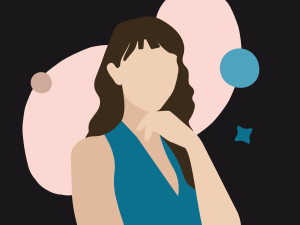
April 30, 2024
Author Ellyce Fulmore struggled with impulsive spending and doing “basic” daily tasks during the pandemic. The pain of coping with that led to her ADHD diagnosis.
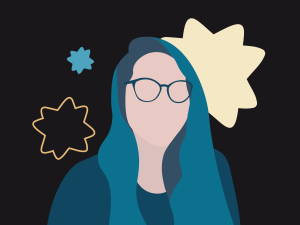
April 16, 2024
ADHD coach Jaye Lin was a gifted kid with undiagnosed ADHD. Now, she’s building communities and helping others cope with ADHD burnout.
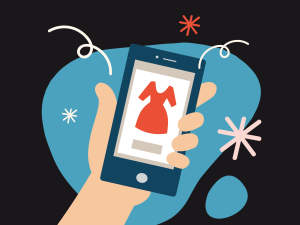
April 2, 2024
Writer Paulette Perhach had money coming in but struggled to keep it in her bank account. An ADHD diagnosis brought her struggles into perspective.
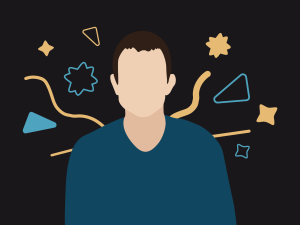
March 19, 2024
Eye to Eye founder David Flink is fighting the “just try harder” myth surrounding ADHD, dyslexia, and other learning and thinking differences.
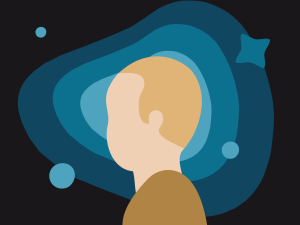
March 5, 2024
Peter Jones used to feel better saying he had a hearing problem rather than considering ADHD. Now, he knows he has ADHD and isn't afraid to say it.
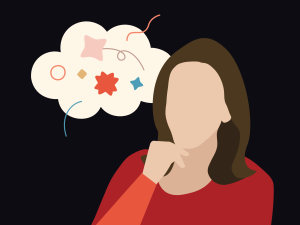
February 20, 2024
Before her ADHD diagnosis, ADHD coach Emily Weinberg thought she was just lazy. But in reality she was stuck in “analysis paralysis.”
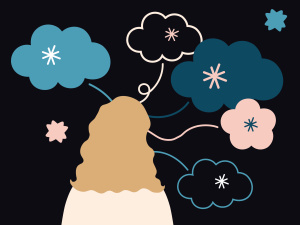
Carol Blumenstein was called an unteachable student. Now, she knows she has ADHD and dyslexia, and supports her five kids who learn differently, too.
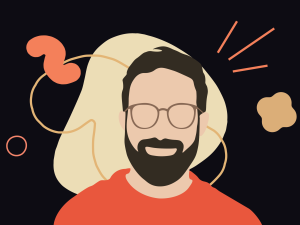
January 23, 2024
Executive coach, actor, and former criminal defense attorney Ernest Anemone shares his ADHD story — and why he questions the term “attention deficit.”
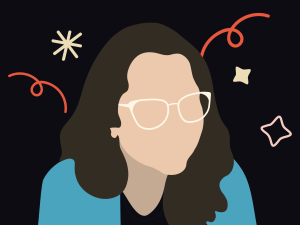
January 9, 2024
ADHD and post-traumatic stress disorder (PTSD) symptoms can look similar. And they can morph into what Hannah calls “a trauma ball of blame.”
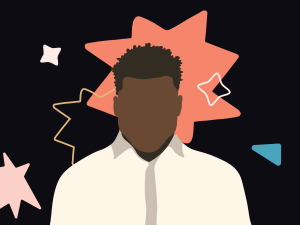
December 26, 2023
Livingston Steele was diagnosed with ADHD about a year into working at Understood.org. His experience and work have given him immense empathy for people with ADHD.
